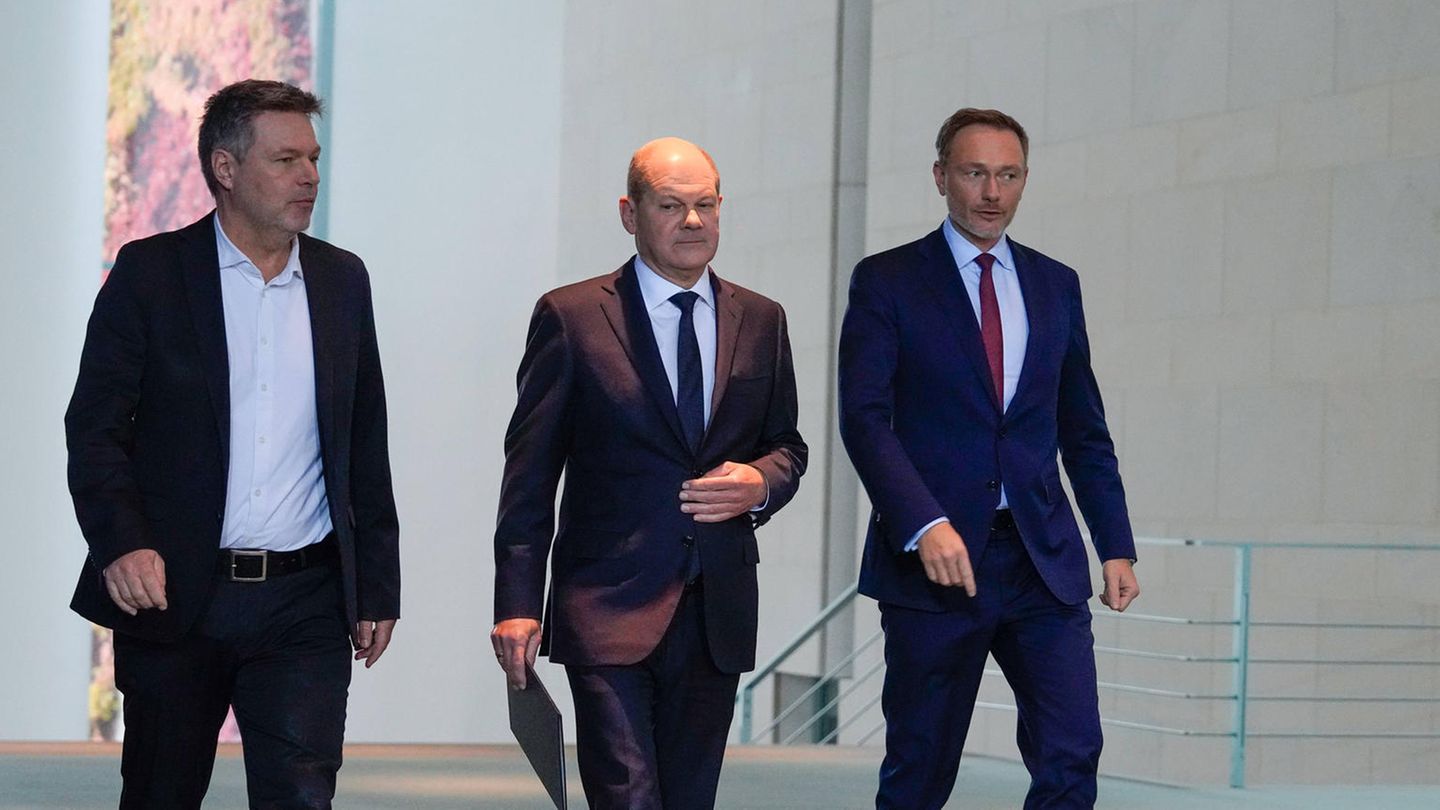The government is still examining what consequences the ruling will have on the budget. But it is already clear that the biggest problem is not in the future.
This was clear to the Federal Minister of Economics on Deutschlandfunk early in the morning. The judgment of the Constitutional Court on Household, said Robert Habeck, “also refers to the economic and stabilization fund.” It is a sentence with immediate consequences. If it is true, and it is not just the Green Vice Chancellor who interprets the verdict this way, then the current year’s budget would be unconstitutional. Then a supplementary budget would have to be produced quickly and the Bundestag would have to declare the emergency again in order to justify an exception to the debt brake.
The government spokesman sounded much vaguer at midday. What further impact the ruling will have is still being examined, he said Steffen Hebestreit. Wait and see, please.
Last week it did Constitutional Court a reallocation of loans over 60 billion euros in the 2021 budget was declared null and void. They were approved at the time to deal with the corona crisis, but in the future they should be used for climate protection and the modernization of the economy. Now the billions for the Climate and Transformation Fund (KTF) are not available. And probably not just that.
What to do? The different statements from the Vice Chancellor and government spokesman show that we only know things for sure – and if we do, then only later. There is a lot at stake. 29 Special assets There is a total of the federal government, the oldest is from 1953, the trust fund for miners’ housing. Are they all in danger now?
It depends on the emergency
This is what the economist Armin thinks Steinbach not from. “For most special funds, the risk that they are not legally compliant is likely to be low,” says Steinbach, who formerly worked in a senior position in the Federal Ministry of Finance. He now teaches at the Paris elite HEC university. It’s good, says Steinbach, that the government is now checking all the pots. In his opinion, the special assets that are based on an emergency situation are particularly problematic.
In addition to the KTF, which the constitutional judges have now criticized, this also concerns the financially strong Economic Stabilization Fund (WSF). It was intended to support companies in the wake of the corona pandemic. After the outbreak of the Ukrainian War, its purpose was expanded to cushion the consequences of the energy crisis. To this end, the WSF was authorized in 2022 to raise up to 200 billion euros in loans on the capital market. That was the so-called “double oomph”. At that time, the federal government declared an emergency in order to be able to deviate from the debt brake.
Because the WSF relies entirely on emergency loans, it is now at massive risk as a result of the ruling. “The loans must be counted towards the debt brake in the year in which they are taken out and issued,” says Steinbach. For 2023, this could mean that the budget will now be missing more than 30 billion euros that the state spent from the WSF on cheaper energy and electricity prices.
The remaining special funds, on the other hand, were not founded on the basis of an emergency, says Steinbach, and the rules for them are less strict. The ruling is therefore by no means a ban on future special assets. Even after the verdict, Steinbach sees a financial source for additional funds for climate protection, for example, in anchoring a special fund for transformation in the constitution. This means that the pot would not be subject to the debt brake, like the 100 billion special fund for the Bundeswehr, which is already in the Basic Law. As with the financing of the turnaround, the traffic light would need a two-thirds majority in the Bundestag. So she would be dependent on the votes of the Union.
Habeck blames Union
It doesn’t look like that at the moment. There is no sign of any grand coalition unity in the face of a difficult budget situation coupled with major challenges. On the contrary. While the traffic light is still examining and considering what to do next, some Social Democrats and Greens are trying to shift the blame for their misery to the CDU and CSU.
That many citizens are now threatened with higher electricity and gas prices? For this, Habeck said on Deutschlandfunk, people could thank the Union and CDU leader Friedrich Merz. The Union, in turn, has apparently completed its examination of the new situation. The government must now present a supplementary budget for 2023, demanded Mathias Middelberg, vice-president of the Union parliamentary group in the Bundestag. “The 2024 budget, as it currently exists, is also unlikely to be ready for decision,” he added.
Source: Stern
I have been working in the news industry for over 6 years, first as a reporter and now as an editor. I have covered politics extensively, and my work has appeared in major newspapers and online news outlets around the world. In addition to my writing, I also contribute regularly to 24 Hours World.




